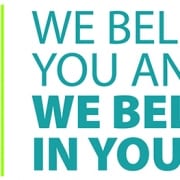VA Is Dedicated to Supporting Veterans Who Experienced MST
By Chris Skidmore, PhD
Associate Director, Veterans Health Administration Military Sexual Trauma Support
Every April, the Department of Veterans Affairs (VA) amplifies its year-round outreach during Sexual Assault Awareness Month with a special campaign to show its support for a particular population of veterans: survivors of military sexual trauma (MST).
The VA uses the term MST to refer to sexual assault or sexual harassment that occurred during military service. MST can occur at any time or place, whether on or off duty or on or off base. The perpetrator(s) may or may not be someone known to the survivor and may be a fellow service member or a civilian. Veterans of all service eras, branches, backgrounds, genders, sexual orientations, and physical sizes have experienced MST.
For MST survivors, just learning that someone believes they were traumatized and understands the many different ways MST can affect survivors can be tremendously healing. That’s why this year, VA’s message for Sexual Assault Awareness Month focuses on supporting MST survivors and demonstrates VA’s confidence in their strength and resilience: “We believe you — and we believe in you.”
The VA also wants to make sure that all veterans who experienced MST understand that healing is possible., MST is never their fault, they are not alone, and VA is ready to help. The VA is reaching out to survivors and their families, friends, and supporters for help in spreading the word. Everyone has a role in letting veterans know that VA offers free services for mental and physical health difficulties related to MST. You can help by sharing information about MST with veterans and veteran supporters.
Show your support by telling MST survivors about what’s available at VA.
Some veterans recover from MST without significant long-term difficulties, but many others are fighting quiet battles all around us as they cope with MST’s lingering effects on their mental and physical health, work, relationships, or everyday life — even many years after the experience.
Veterans’ reactions vary based on age, ethnicity, gender, sexual orientation, religion, life experiences, and other background factors. Symptoms also vary, and they may include experiencing strong emotions, sleep disturbances, relationship and trust issues, unsafe coping behaviors, and physical health effects.
Many MST survivors do not want to tell others about their experiences. Some stay silent because they worry about being judged or not being believed, while others can’t imagine how treatment could truly help them heal. As a result, many survivors can find it hard to access care even when they need it.
During Sexual Assault Awareness Month, VA redoubles its efforts to raise awareness about VA’s free services to support survivors’ healing and recovery. Eligibility for VA’s MST-related care is expansive. No documentation of the MST experience is required. Veterans do not need to have reported the MST experience at the time, to have sought care within a certain time frame, or to have applied for service connection for an MST-related condition to get care.
To learn more, veterans may contact a local VA medical center and ask to speak with the MST Coordinator, a professional at every VA health care facility who specializes in connecting survivors with the MST-related care and services that are right for them. Veterans can also speak with a VA health care provider.
Find more resources and materials about Sexual Assault Awareness Month at https://www.mentalhealth.va.gov/mst.
Volume 75. Number 1. 2021




